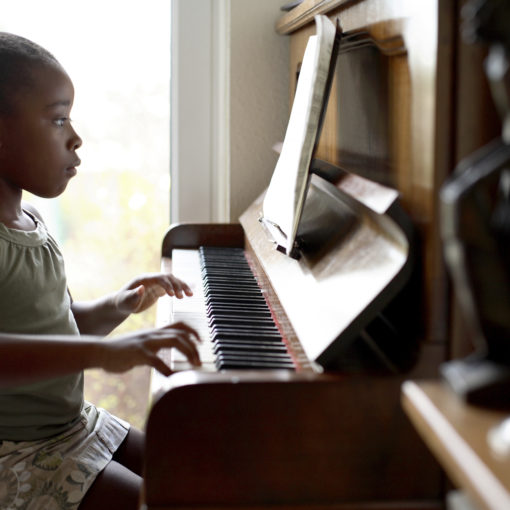Learning a new instrument is fun, whether it is for a child or an adult. It is a new skill and while it takes a lot of practice, dedication and discipline, the rewards can be beautiful. If you or a loved one are musically inclined, there are certain things you should keep in mind. While learning may not be easy, you’ll be glad to know that there are many benefits to learning instruments. Musical training can change one’s brain structure to improve long-term memory and brain development. This is especially true if one starts to learn a new instrument at an early age. Are you interested in learning to play an instrument? We’ve highlighted some basic tips that could help you in your musical journey below!
Choose the Instrument Carefully
Choosing the right musical instrument will set your exciting journey off on a high note! It is important that you choose an instrument you have a soft spot for and are excited to learn. Also, your choice of musical instrument should resonate with your age and mental maturity. Once you’ve chosen the right instrument, your interest will be piqued for the rest of this learning adventure.
Be Patient
When learning an instrument, patience is essential. Start with easy steps and work your way up to excellence gradually. Consistency when it comes to practice is crucial. If your child is learning to play an instrument, you can impact their success by helping them develop healthy practicing habits. Encourage your child to practice every day, but, moderation is just as important. Forcing them to practice can do more harm than good because music is supposed to be enjoyable. Perhaps you could learn alongside your child, giving you ample time to bond with them.
Record the Sessions
If you don’t keep track of your daily effort, how will you know how far you’ve come? While training is crucial, so is keeping track of your practice sessions so you can fill any gaps in your knowledge! Recording your child’s practice sessions could be equally beneficial. This is especially true if they have a teacher checking the recordings and offering them advice. Allow your child to use a microphone to record the practice sessions. By recording practice sessions, your child and their instructor can spot problems they may have missed during the actual practice session and correct them.
Set Realistic Goals
Set goals for your child that they can attain in each lesson or practice session. This could be as straightforward as perfecting the first four bars of a song. Don’t set your goals too low, but be realistic in your approach. You can break down your major goal into little bits so each step feels like progress. Divide a song into bars if you wish to learn it. Learn each one separately before putting them all together. Setting realistic goals helps the learner to stay motivated to achieve more challenging goals in the future.
Pick the Songs Which Are Loved
If your child has a favorite song, start with it first because it is simple. Of course, you should start with songs that are appropriate for beginners, but a good idea is to skip the generally recommended tunes and instead look for musicians you enjoy and their easiest tracks to learn. Your child may learn faster if you engage them in the content they enjoy and makes them happy.
Get a Professional Music Teacher
There is no greater assistance than that of a qualified teacher. If your child is talented and motivated about studying an instrument, it is critical that you provide them with the necessary materials. While we recognize that the internet is a wealth of tools for teaching your child to play an instrument, having a professional to consult will go a long way in assisting them in their musical endeavors. If you have the financial means, hiring a music instructor will make learning an instrument much easier for your child. This does not, however, imply that you should become complacent and leave everything to the instructor.
Don’t Exhaust Your Enthusiasm
Learning a new talent is both physical and mental, and pushing yourself too far can be dangerous. You don’t want to associate the instrument with negativity. So, if your child is growing tired of training or having a horrible day and nothing seems to be working, take a break and resume the next day. Pushing through frustration is sometimes necessary, but knowing your limitations is also important. It’s difficult for your child to remember or retain knowledge when their brain is weary. So try again when they’re in a better mood.
Start a Group
After the initial few months, let your child form a jam band. This is a little more complex, but once you’re comfortable with your instrument, forming an informal band is a terrific idea. If your kid has any musical friends or acquaintances who are learning to play instruments, scheduling a weekly jam session with them is an excellent way to keep them motivated. Your child can work toward something during the week, such as learning a new song that you’ve all agreed to play together. They’ll also learn how to play with other performers, which is just as important.
When it comes to learning a musical instrument, starting early gives you a head start in your musical journey. Whether you are learning as an adult or signing your child up for classes, regular practice, challenging oneself, and working together with the instructor is the key to a successful musical education. We hope this article was helpful for you!
Pasadena Music Academy is a reliable music academy for you or your little one. Visit https://pasadenamusic.com/ for more info.
Pasadena Music Academy,
2982 East Colorado Blvd #111 Pasadena CA 91107,
626-578-9242
Find us on Social Media
https://www.facebook.com/MMSPasadena/
https://www.instagram.com/modernmusicschoolpasadena/


